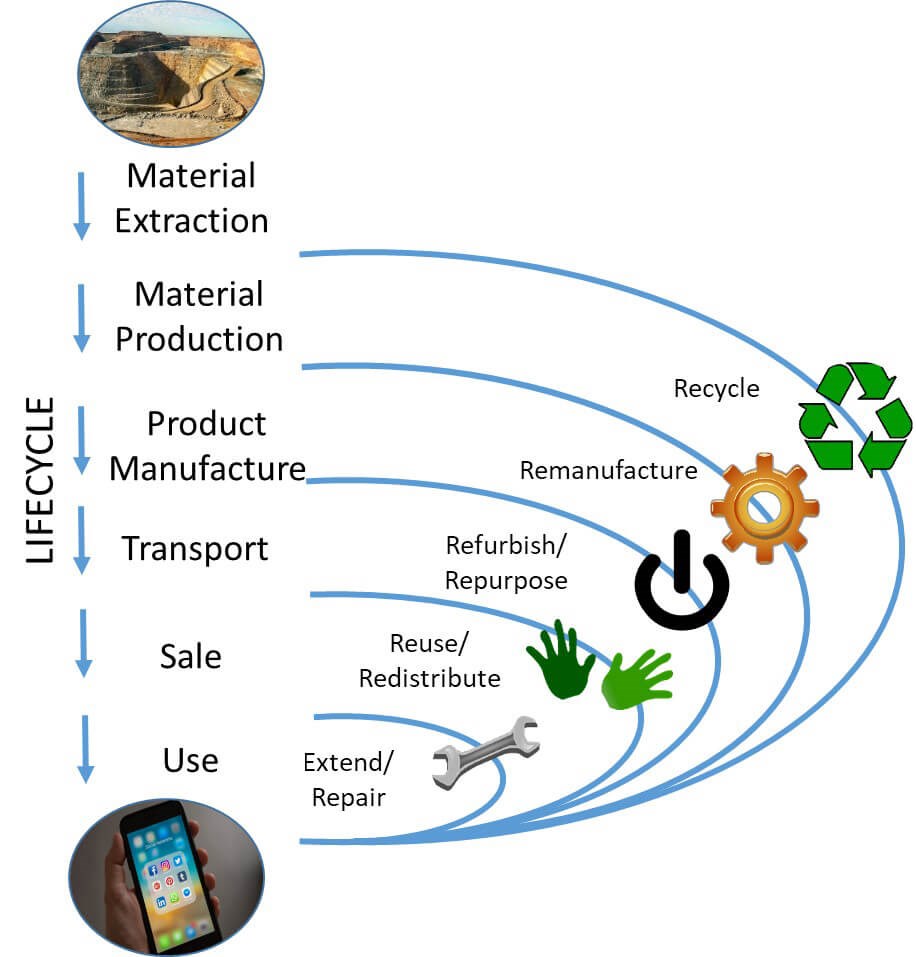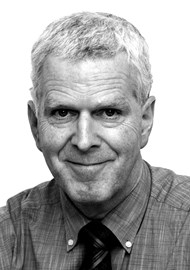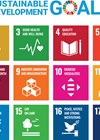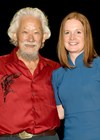Grassroot initiatives are often the most effective. When individuals come together and work with industry, changes are possible in reducing carbon emissions. This article summarises such an initiative working with companies to address Environmental, Social, and Governance (ESG) and Corporate Sustainability Reporting Directives (CSRD).
Climate change casts a long shadow over humanity. Addressing this man-made crisis is a collective challenge for all of us. According to the Paris Agreement, all industries and sectors, including healthcare, need to make significant efforts and change how they operate to stay within 1.5 degrees of global temperature change.
Net-zero emission requires minimising an organisation’s emissions and only offsetting the unavoidable ones — it has to avoid emissions through efficiency, electrification, renewables, and other means. A key component of this transition to net-zero carbon emissions encompasses a more efficient and circular use of raw materials to respect planetary boundaries.
What does the transition mean for hearing healthcare? Fortunately, there is increasing awareness of sustainability within hearing healthcare. For instance, at the European Symposium on Pediatric Cochlear Implantation (ESPCI), planetary health was one of the main topics integrated into many organisational aspects and talks (www.espci2023.org). Lukas Varga, an ENT doctor from Slovakia, highlighted the substantial amount of paper (manuals and packaging) used during the initial fitting of a cochlear implant recipient. In Europe, it’s mandatory to include, with a medical device, a printed manual in the respective languages of each country. Meanwhile, digital alternatives like QR codes are already in use in places like Singapore. Hence, in certain scenarios, regulations hinder progress towards more efficient care. In other scenarios, regulation that stimulates better practices is dearly needed. While, one clinician or one clinic alone, for instance, cannot reduce this paper usage.

We need to identify barriers and seek alternatives collaboratively. More stringent Environmental, Social, and Governance (ESG) and Corporate Sustainability Reporting Directive (CSRD) aspects might offer the needed direction.
A Delphi Consultation approach to creating ESG and CSRD roadmaps
In 2022, we started looking into the carbon footprint of hearing healthcare. The ‘low-hanging fruit’ aspects were easy to identify: we concluded that the use of rechargeable hearing aids, recycling/refurbishing devices, and greater cross-compatibility of accessories, can help reduce the environmental footprint of hearing care [1].
"At the European Symposium on Pediatric Cochlear Implantation (ESPCI), planetary health was one of the main topics integrated into many organisational aspects and talks"
But it is also clear that the transition to net-zero carbon emissions is more complex. We need to better know the environmental impact across the full patient journey so that we can subsequently guide industry and clinicians to explore and implement new strategies to reduce further the impact on the environment and the use of resources.
The next step was to initiate a Delphi Consultation regarding ESG with hearing healthcare companies. A Delphi Consultation is an iterative method extensively used to reach consensus on complex problems. We established a core ESG hearing group with participants from the ‘big five’, GN Resound, Sonova, Demant, WS Audiology and Starkey, as well as Med-El and Cochlear. The aim of this exercise? We expect to learn more about topics, including ESG reporting metrics and regulations. But we may also identify general barriers to phasing out disposable batteries, or share lessons on how to best conduct lifecycle assessments (LCAs) on hearing aids and cochlear implants. Ultimately, we hope to stimulate progress towards hearing healthcare ESG objectives and pinpoint barriers that potentially obstruct the adoption of sustainable practices.
By 2024, EU-based companies will need to provide more detailed sustainability reports driven by CSRD regulation [2]. It is likely that this can and will have an impact beyond the EU. Companies in the hearing healthcare sector must adopt uniform reporting metrics, given their similarities, so clinicians and customers can readily compare performance on ESG. It makes sense to anticipate impending stricter sustainability regulations and act accordingly for worldwide operations.

Source: https://repairsociety.blogg.lu.se/the-ubiquitous-rs-what-are-they-really/
There are already promising examples of activities that could have a multiplier effect. WS Audiology performed and reported in 2021 a life cycle assessment showing that Signia rechargeable hearing aids have, over the lifetime, less environmental impact than a single identical non-rechargeable model (based on use of resources, toxic substances, energy use, etc.) [3]. In that context, we intend to involve hearing aid battery manufacturers in our consultations to advocate for the phasing out of disposable ZnO batteries. Such information can guide clinicians and consumers with hearing impairments towards sustainable choices.
Besides the carbon footprint, we should not forget other environmental factors such as the use of raw materials including non-degradable plastics, toxic waste, rate of refurbishments (re‑use), recycling rate, lavish packaging, and transport.
"Ultimately, we hope to stimulate progress towards hearing healthcare ESG objectives and pinpoint barriers that potentially obstruct the adoption of sustainable practices"
Advocacy is equally important. With more information and options available, we have put our hope on young ENT physicians (YO-IFOS, ) and ENT green teams to bring sustainability into our practices (www.yoifos.com/sustainability-committee). Green teams play an important role in bringing sustainability into practices, either departmentally (such as an ENT green team) or hospital-wide. These specialised groups focus on implementing visible, impactful eco-friendly solutions within healthcare settings, ranging from waste separation to reuse of materials, and sustainable commuting initiatives. Green teams strategically select and execute projects, promoting sustainability as an integral part of their organisational culture and employing varied methods to disseminate sustainable goals and knowledge.
In this pursuit, adopting science-based targets is intrinsic, setting ambitious goals aligned with the Paris Agreement’s objectives and working diligently through incremental improvements (https://sciencebasedtargets.org). Although the road will be full of challenges, our path is clear if we truly want to improve the health of our population.
References
1. Wasmann JW, de Laat J. The Carbon Footprint of Hearing Healthcare and How to Reduce It. Hearing Tracker. 2022.
www.hearingtracker.com/news/
carbon-footprint-of-hearing-healthcare
2. European Commission. Corporate Sustainability Reporting Directive (CSRD).
https://finance.ec.europa.eu/capital-markets
-union-and-financial-markets/company-reporting
-and-auditing/company-reporting/
corporate-sustainability-reporting_en
3. Abraham V, Aigner J, Klement J, Gyenge P. White Paper - Comparison of battery solutions for hearing aid devices. Signia Pro.
www.signia-pro.com/en-au/blog/
global/2021-12-14_comparison-of-battery
-solutions-for-hearing-aid-devices/
All links last accessed October 2023.
This article reflects the personal views of the authors, which do not necessarily represent the views of the participants in the Delphi Consultation regarding Environmental, Social, and Governance (ESG) & Corporate Sustainability Reporting Directive (CSRD) aspects.










